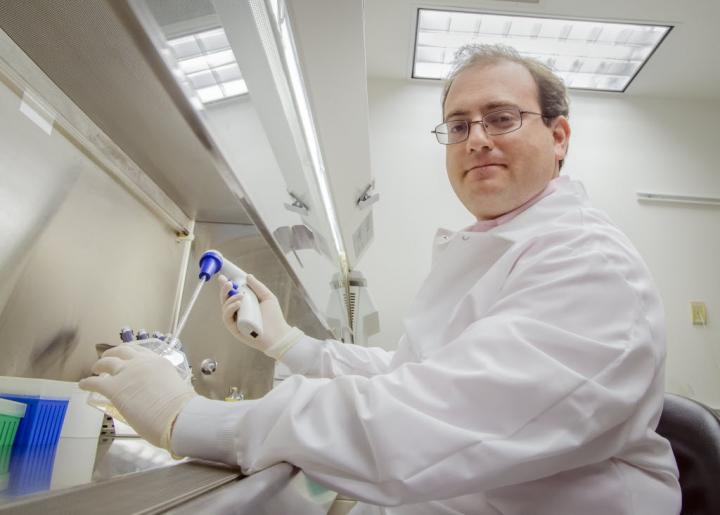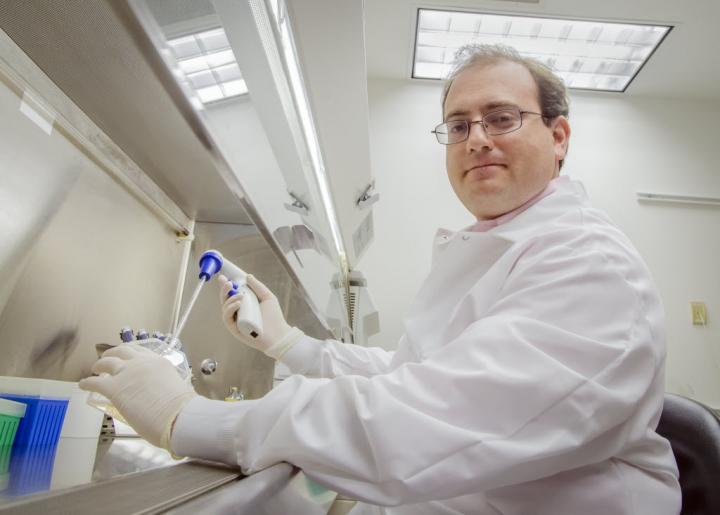
Credit: Fred Hutch News Services
Immunotherapy for leukemia patients has been nothing short of a miracle. Now scientists hope to use that science and other forms of gene therapy to tackle three of the deadliest forms of cancer: glioblastoma (brain cancer), sarcoma (bone cancer) and ovarian cancer. Three scientists have received $1.3 million in critical funding from the Alliance for Cancer Gene Therapy (ACGT), the nation's only nonprofit dedicated exclusively to cell and gene therapies for cancer. These new grants will be used to study immunotherapy and virotherapy in the treatment of glioblastoma, sarcoma and ovarian cancer.
"We have big hopes for these grants," said John Walter, CEO and president of ACGT. "ACGT was one of the first funders to support Dr. Carl June's work at the University of Pennsylvania in successfully treating leukemia with gene therapy when it was still deemed 'risky' science. The recent FDA approval of the first gene therapy treatment to come out of this research, Kymriah, validates the promise of this science. With these three new clinical investigator grants, we hope to see similar results with immunotherapy and virotherapy in treating hard-to-combat solid tumor cancers."
The new grants are:
Nori Kasahara, MD, PhD – Virotherapy for Glioblastoma Brain Cancer
Co-Leader Viral Oncology Program
Sylvester Comprehensive Cancer Center, University of Miami
Dr. Kasahara's research focuses on translational application of gene transfer technologies to cancer, transplantation and regenerative medicine. Dr. Kasahara will use his ACGT grant to advance a clinical trial for a virotherapy for glioblastoma. Using a modified retrovirus to deliver chemotherapy directly into cancer cells, these "suicide genes" continue to replicate to prevent recurrence. The work will take the experience in the lab and translate it to a patient clinical trial.
Seth Pollack, M.D. – Immunotherapy for Sarcoma
Fred Hutchinson Cancer Research Center, Seattle, Washington
Dr. Pollack's research is focused on developing novel immunotherapies for patients with advanced sarcoma, specifically synovial sarcoma (SS) and myxoid/round cell liposarcoma (MRCL). Dr. Pollack's ACGT grant will further his research by using immunotherapy to target this rare form of cancer that grows in connective tissue – cells that support other body tissues such as in bones, muscles, tendons, etc. The initial clinical trial will deploy two different types of genetically engineered T cells to target the cancer and to assess efficacy and safety.
Daniel Powell, Jr., PhD — Immunotherapy for Ovarian Cancer
Director of Immunotherapy for Division of Gynecology
University of Pennsylvania Perelman School of Medicine
Dr. Powell's research focuses on the development of innovative immunotherapeutic strategies, including adoptive immunotherapy, using chimeric antigen receptor (CAR) T cells. Dr. Powell will used his ACGT grant to enroll nine ovarian cancer patients in a new clinical trial. Immune system killer T cells will be developed outside the body and reinserted to establish an offense against the disease and a defense against recurrence.
"ACGT's Clinical Investigator grants allow these scientists to advance their research from the laboratory to the bedside for patients in clinical trials, providing for an opportunity to see these treatments work in actual patients and hopefully save lives," noted Walter. "Our goal at ACGT is to truly make an impact on how cancer is treated through the use of gene and cell therapies so that one day, cancer will be a treatable and manageable disease."
###
ACGT has now issued a total of 55 grants, including 19 clinical translation grants and 36 Young Investigator grants totaling more than $28 million. This is particularly exciting given ACGT's commitment to contributing 100 percent of donations directly to research. ACGT-funded work is also attracting increasing attention from the pharmaceutical industry, which is swiftly discovering the potential of cell and gene therapies.
About Alliance for Cancer Gene Therapy (ACGT)
Established in 2001, ACGT is the nation's only non-profit dedicated exclusively to cell and gene therapy treatments for all types of cancer. One hundred percent of contributions go directly to research. Founded by Barbara Netter and her late husband Edward, ACGT was created to conduct and accelerate critically needed innovative research. ACGT is located at 96 Cummings Point Road, Stamford, Connecticut 06902; 203-358-5055. To learn more, visit acgtfoundation.org or join the ACGT community on Facebook, Twitter and YouTube at @acgtfoundation.
Media Contact
Jenifer Howard
[email protected]
203-273-4246
Original Source
http://www.acgtfoundation.org/wp-content/uploads/2014/01/Three-of-the-most-deadly-cancers-get-critical-funding-for-research.pdf





